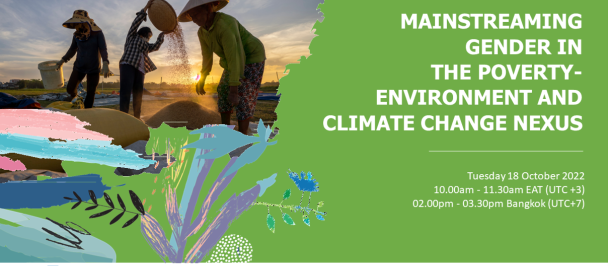Photo: UNDP
Indonesia has taken progressive steps to reform public climate finance management. Since 2014, UNDP through the Sustainable Development Financing (SDF) project has assisted the Government of Indonesia (GoI) in strengthening its capacities in greening the budget planning and monitoring process through a performance-based budgeting system. SDF is a joint collaboration between UNDP–UNEP Poverty-Environment Initiative – which transformed to the Poverty-Environment Action (PEA) for Sustainable Development Goals (2018-2022) – and the UNDP programme of the Strengthening Governance of Climate Finance to Benefit the Poor and Vulnerable. Working closely with the Ministry of Finance, the project facilitated the development of a climate public expenditure report at the subnational level and implementation of the climate budget tagging (CBT) mechanism at the national level starting in 2016.
In addition, to enable the tracking and evaluation of public expenditure from climate mitigation and adaptation, the CBT mechanism encouraged the Ministry of Finance to develop an innovative financing instrument, the Green Sukuk (Sharia-bond), which aimed to accelerate progress towards the achievements of Nationally Determined Contributions and SDGs target. In the process, PEA has continuously provided support to the Ministry of Finance and relevant line ministries, through a series of capacity building and technical support activities in the pre- and post-issuance process, e.g. in the development of the Republic of Indonesia Green Bond/ Sukuk Framework, preparation of the Green Sukuk Annual Allocation and Impact Reports, as well as in several studies/ knowledge products development – one of which is the study on Indonesia’s Retail Green Sukuk.
Since leading as the world’s first sovereign Green Sukuk issuer in 2018, the government has mobilized over US$3.9 billion towards green investments through its six Green Sukuk issuances (four times in the global market and twice in the retail market). The proceeds from Green Sukuk have been allocated towards projects in renewable energy, energy efficiency, sustainable transport, waste management, and resilience to climate change sectors – contributing towards reducing up to 10.3 million tonnes of CO2 emissions, along with the strengthening of climate resilience.
Following the success in the implementation of national CBT, the Ministry of Finance expanded the climate budget tagging to the sub-national level since 2020. The piloting sub-national CBT has been conducted in several provinces, cities, and regencies, with PEA support provided through capacity building and training for local governments’ staff, as well as data monitoring and evaluation. In addition, the programme also initiated a gender responsive climate change budgeting study with the government. This was a crucial move as climate change disproportionally affects women.

 Locations
Locations


